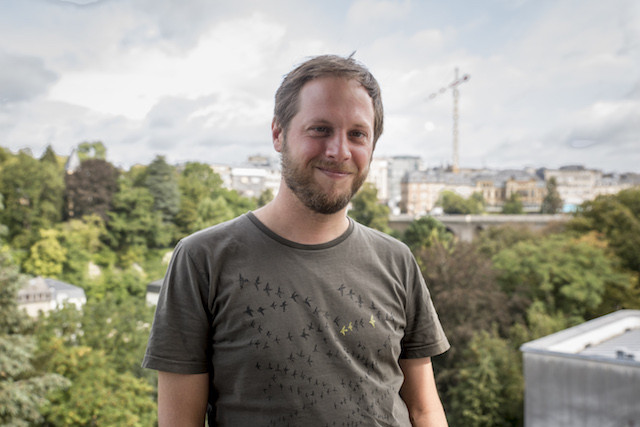“If you don’t have a helping hand from your parents, it’s impossible to buy a home in Luxembourg,” Ad-hoc’s Eric Weirich tells Delano, adding: “Unless you’re a couple and both work for the state or in finance. For “normal people” with normal paid work, it’s no longer feasible.” It was partly this earnings barrier which attracted Eric to the programme back in 2014 and pushed him to later take over much of its coordination.
Negotiations are close to completion with Fonds Kirchberg for a plot of land in an area of Kirchberg planned for development. Ad-hoc wants to build a block of about 30 flats, sized according to the requirements of the cooperative residents. The flats will include a kitchen, at least one bedroom and bathroom. They will be smaller than most private flats to allow space for the “big common room that will be available to all the people there,” Weirich says. “We’ve very few spaces for parking in the building but we will have a car sharing scheme with 7-8 cars available to the people living there.”
People can become residents by bringing an initial investment calculated per square metre occupied to help the cooperative pay off the bank loan required to build the flats. Afterwards, residents pay a peppercorn monthly rent of roughly €17-€18/sqm. A proportion of the flats will be reserved for people on low incomes, who will pay a lower rental fee of around €13-€14/sqm. “Our approach is that everyone should be able to live in our project, irrespective of how much they have in their bank account, where they come from and their age,” Weirich says.
Sounds good, but some might ask where’s the catch?
Cooperative members don’t own the plot--it is made available on a 99-year emphyteutic lease with Fonds Kirchberg. On the one hand this gives residents the security of being able to stay there for as long as they want. On the other hand, when they want to sell their flat, they will only get back the capital invested, nothing more. “On that point it was difficult to convince people they won’t get any profit on their investment and convince them of the social benefits of this way of living,” Weirich says.
Besides offering an affordable alternative to Luxembourg’s eye-watering property prices, Ad-hoc’s project aims to encourage social integration. “Everyone will be needed in our project, which is based on exchange and helping one another,” Weirich explains, adding: “It’s not only about housing people and constructing a building--but to have this community that will emerge from the project.”
Getting the right community mix has not been easy--the group struggled to agree on a common language for discussions, which meant some left. As a result, Weirich says the group is mostly Luxembourgish but he does not rule out other similar schemes in future. Given the level of interest in cooperative housing in Luxembourg, he estimates some 20 such blocks could be constructed. “Because of the mentality here, in my eyes it will always remain a niche product in terms of housing,” he says. “But, it’s a nice to have and it will also be one piece of the big puzzle that will help solve the housing crisis, hopefully, one day.”
